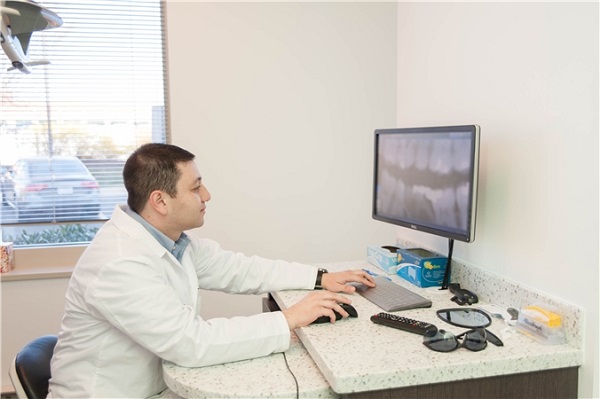3 Tips to Deal With Dental Anxiety

Dental anxiety can make you feel like going to the dentist is the worst thing in the world. It is often rooted in a fear that dental treatments are painful or a prior bad experience with dentists. In reality, dentists do not cause people pain, they help to get rid of the pain and discomfort caused by toothaches and other oral health issues.
Dentists also help to keep pain away by performing preventative treatments that keep teeth and the gums healthy. People with dental anxiety often miss out on these benefits. Even worse, those with dental phobias often end up making minor dental issues a lot worse simply because they refuse to visit a dentist. That usually leads to more time dealing with discomfort and higher dental bills.
3 ways to manage dental anxiety
Ready to take control of your dental anxiety? Here are some simple things you can do to make your visits to the dentist more pleasant:
1. Inform the dentist
Talking to a dentist about dental anxiety can help to keep patients more relaxed when at the dentist. It is something dentists deal with often and many already have protocols in place for people with dental phobias. There are simple things dentists can do to make their patients feel more comfortable like using tools that will not scare the patient or playing relaxing music.
The dentist might also come up with a hand signal the patient can use to indicate they need a break. That can help to prevent anxiety from creeping in when the patient is overwhelmed with the dentist peering over them.
2. Use distractions
Focusing on other things besides the treatments being performed can help patients to deal with dental anxiety. The patient can focus on a happy memory or a special occasion they are looking for. Devices like smartphones and tablets can be used to enjoy media during treatments. The less focused the patient is on the treatment being performed, the less likely they are to feel anxious about it.
3. Use relaxation techniques
Relaxation techniques are another trick that can be used to stay calm during treatments. Taking deep breaths (four seconds inhaling and four seconds exhaling) helps to reduce stress and tension. Patients can also use visualization techniques to reduce tension during dental appointments.
Dental sedatives
Dental sedatives are a more scientific approach to dealing with dental anxiety. It involves the dentist administering dental sedatives that help to relax the patient. The most common sedative used to treat dental anxiety is nitrous oxide. The gas is administered with a nose mask and it only takes minutes for its effects to kick in. The gas creates happy feelings and it makes treatments significantly more enjoyable for patients. Dentists also use other sedatives like valium to help with dental anxiety.
We can help with dental anxiety
Call or visit our Sterling clinic and take control of your dental anxiety. Our dentist will teach you ways to manage your fears.
Let's get started…
Request an appointment here: https://www.titandentalcare.com or call Titan Dental Care at (703) 745-3227 for an appointment in our Sterling office.
Check out what others are saying about our services on Yelp: Read our Yelp reviews.
Related Posts
tooth fillings offer a simple approach with little to no pain. This dental restoration treatment has long been the standard for restoring and rebuilding teeth damaged by cavities, injury, or minor imperfections such as chips or cracks. When considering different dental restoration options, it is a good idea to get familiar with how each procedure…
An in-office professional dental cleaning is a crucial aspect of maintaining good oral health. While oral hygiene done at home is a great way to keep the teeth and gums healthy, it is important to see a general dentist on a regular basis for cleanings and examinations. Dental cleanings are simple, easy, and relatively painless,…
Choosing a general dentist to straighten your teeth is a great idea. General dentists are primary care dental providers, which means they understand everything there is to know about diagnosing, treating, and managing their patients' oral health. This type of dentist is the first dentist you would make an appointment with when experiencing any dental…
A dental veneer is a popular cosmetic dentistry solution designed to enhance the appearance of teeth by improving their shape, color, and alignment. Proper care and maintenance are essential to maintain a dental veneer's longevity and aesthetic appeal. Following a few practical steps, patients can ensure their veneers remain durable and beautiful for years.Good oral…


